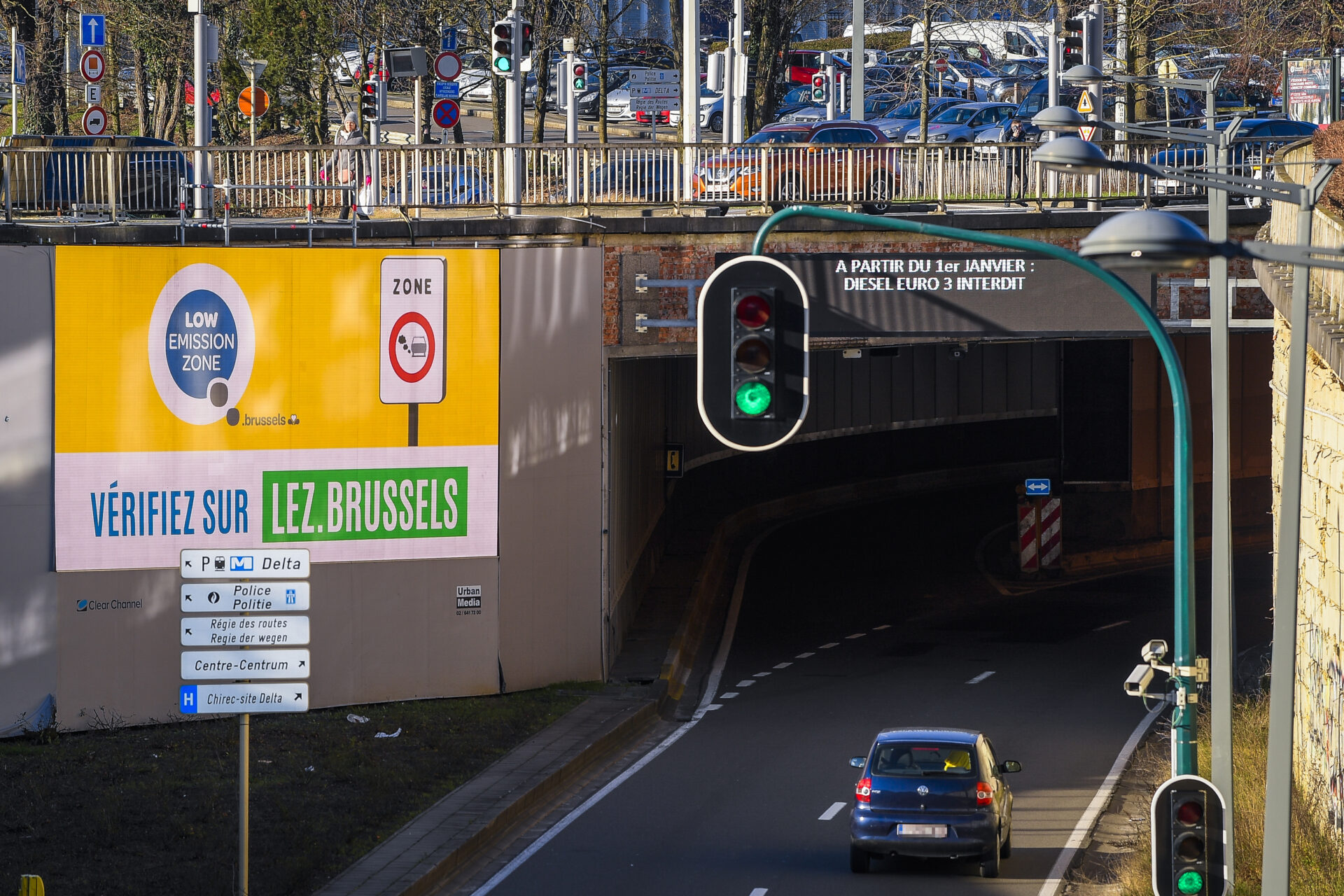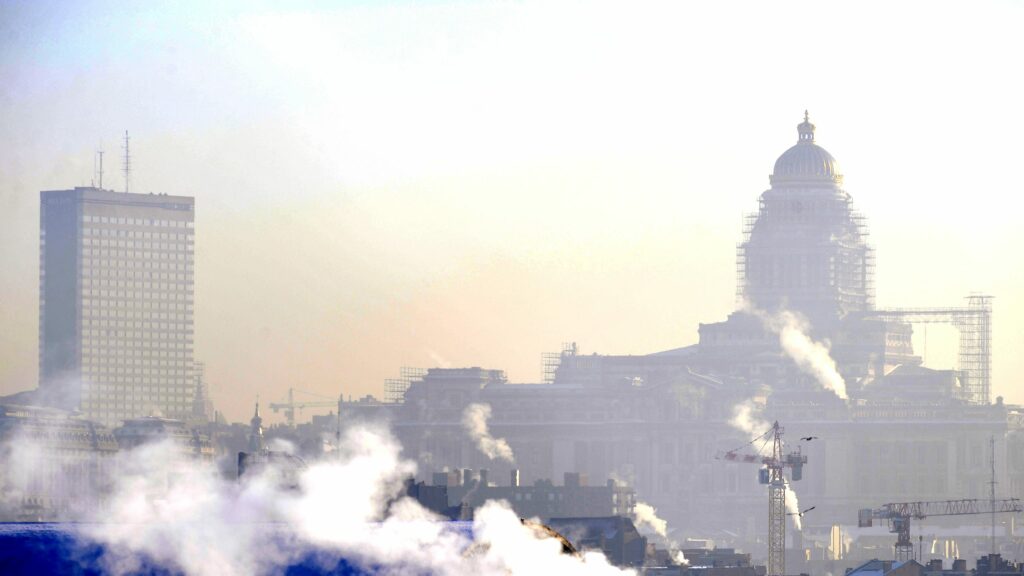Despite costing thousands of lives every year, air pollution remains under-discussed in political circles, leading to calls from health specialists and citizens' organisations to push it up the political agenda.
At the European level, air pollution is the number one environmental risk to public health, especially in dense cities like Brussels (which is one of the most polluted cities in Europe). More than 10% of all deaths in the Belgian capital can be attributed to poor air quality. Children, the elderly and sick people are particularly affected, but poorer neighbourhoods also bear a heavier burden.
"In Belgium, air pollution causes 7,000 premature deaths each year, of which 900 are in Brussels," Xavier Brenez, director general of the Independent Health Insurance Funds, told The Brussels Times. "Compared to the cost [of treatment], the investment needed to improve air quality is minimal."
On the national level, air pollution costs almost 5% of gross domestic product when accounting for health care for chronic illnesses exacerbated by air pollution, such as diabetes, cancer and cardiovascular diseases. Studies estimate that the investment needed to improve air quality is just 0.01% or 0.02% of GDP. "There is a very big discrepancy here which shows that investment makes sense not only for people's health but also economically."
Baby steps in Brussels
It's not all bad news. Since the 1990s, air pollution has decreased by 60 to 80%, with the largest drop recorded since 2018, when Brussels implemented Low Emissions Zones (LEZs). Further measures have been implemented by the region in this legislature, including the Good Move mobility plans and steps to reduce emissions from the buildings sector with the 'Rénolution' strategy.
"Brussels is one of the pioneers when it comes to taking measures to improve air quality," Tim Cassiers, Air Quality and Mobility expert at BRAL (a project to get citizens involved in air pollution solutions) told The Brussels Times. He feels that things are moving in the right direction and that momentum must be maintained.
He acknowledges that air pollution is more present in cities, but adds that cities have more power to solve the problem. "We can more easily switch to sustainable mobility such as cycling and walking, or build a dense transport network because of the urban structure."

The 'Low Emission Zone' in Brussels first banned Euro3 vehicles from entering Brussels. Credit: Belga
A coalition of sorts has been developed between the Brussels Government, health organisations and civil society to take these steps. "We are uniting a variety of stakeholders around air quality; it is only by working together that we can find a solution to this cross-cutting issue," Brussels Environment Minister Alain Maron told The Brussels Times.
Key players from 33 countries convened at an international conference in Brussels, organised by the Independent Health Insurance Funds, to discuss how to improve air quality in cities by 2030. "The fact a major organisation such as the Independent Health Insurance is organising such an event should highlight how important this problem is and the need to act imminently," Casier said.
The conference was organised on the eve of the European Parliament's vote on the revision of the Ambient Air Quality Directive (AAQD). Proposed changes aim to align more closely with the stricter World Health Organisation (WHO) guidelines.
No time to lose
Still, Brussels scores very poorly for air pollution. "The levels of fine particles and nitrogen dioxide remain far too high. Brussels is in eighth place when it comes to most polluted cities in a ranking of 800 European cities, so the situation should be taken seriously," Brenez said.
He stressed that many of the powerful measures, including the LEZs, did not initially come from politicians but were instead the result of persistent campaigning by citizens. Air pollution and the need to improve air quality are a key topic for many voters ahead of the various 2024 elections.
Renaud Leemans of Les Chercheurs d’Air points to a strong desire among Brussels residents to implement stricter measures. "A recent survey we carried out showed that 80% of people in Brussels are concerned about how pollution impacts children; many people have been asking us how they can implement their own measures. They want to take action now," he told The Brussels Times.
Brenez added that citizens are also becoming more aware of health problems caused by air pollution because they are now experiencing them. Yet he warned that there is still a disconnect on the political level between the urgency of the problem and how this is reflected in policies.
"There is a lack of communication about the problem and why we must do something about it. But there is also miscommunication about how the different political parties will tackle it." Leemans added that politicians "must be clear about what they plan to do to solve the problem so that people can vote in good conscience" and that whatever the election results air pollution should be a key priority for all parties, rather than partisan politics.
Related News
- 'Low cost airlines pollute more than ever' as flights exceed pre-Covid peaks
- Europe's most polluted: Brussels urged by 140 experts to improve air quality and 'save lives'
"We have to seriously up our efforts... We do not have the luxury to delay such actions," a message repeated by Maron, who acknowledged that air quality should be a key item on the next government's agenda. "The next legislature will be crucial in accelerating efforts already put in place during this term."
Above all, health experts are calling on politicians to take the issue seriously. Around 50% of the health of citizens depends on their environment, including air quality. Brenez notes that alongside bolstering Belgium's healthcare system, preventing health issues through lowering air pollution is a preferable strategy: "That is much more efficient for the health of Brussels citizens."

